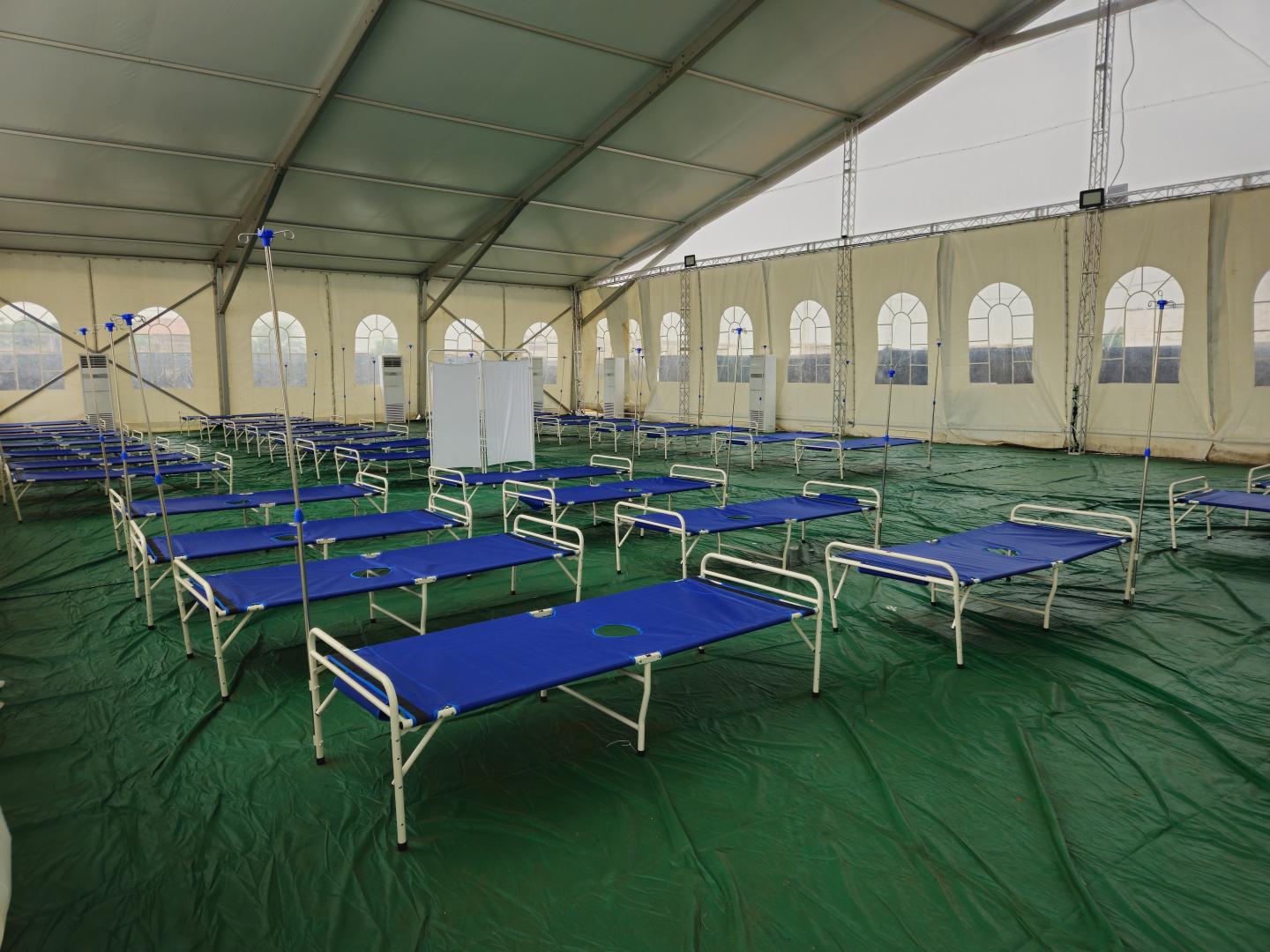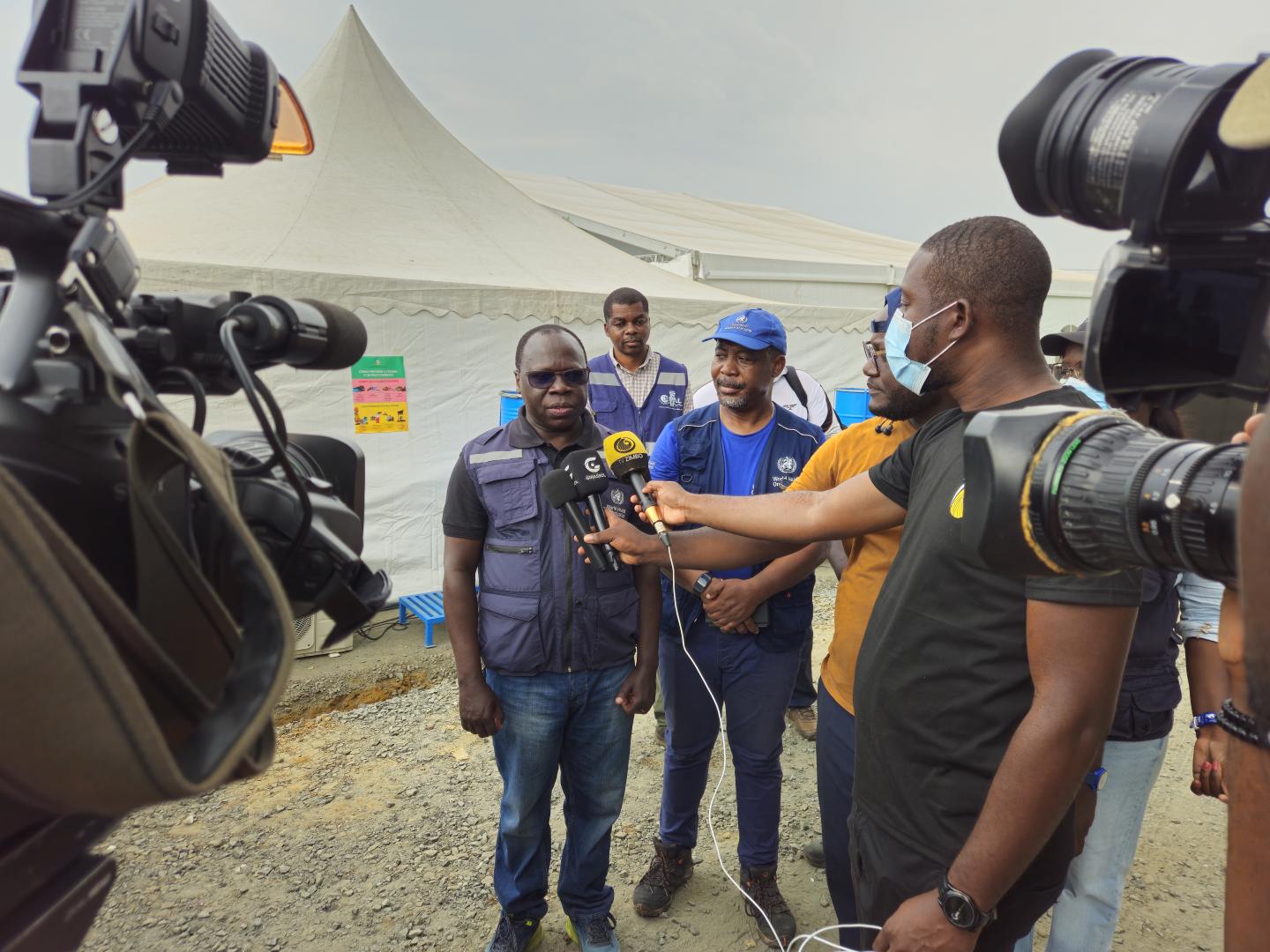WHO Representative Visits Cholera Hotspot in Luanda with Minister of Health
Luanda, Angola – Dr Zabulon Yoti, the World Health Organization (WHO) Representative in Angola, accompanied by a team of WHO staff, joined the Minister of Health today for a field visit to the cholera outbreak hotspot in Cacuaco Municipality. They evaluated the Cholera Treatment Centres (CTCs) set up to manage the crisis and assessed the response at the community level. The government has shown commendable leadership in providing clean water to affected communities, a crucial step in curbing the spread of cholera.
Since the outbreak was first declared on 7 January 2025, over 500 cholera cases and 27 deaths have been reported across three provinces: Luanda, Icolo e Bengo, and Bengo. Most of the deaths have occurred in the communities before patients could access care. Cacuaco Municipality has emerged as the hotspot of the outbreak, prompting intensified efforts to curb the spread of the disease and provide life-saving treatment.

To address the urgent need for localised care, the Angolan government has established four CTCs with a total capacity of 250 beds in the most affected communities. These centres, strategically located within hotspots like Paraiso District in Cacuaco Municipality, enable individuals to access prompt treatment without needing to travel long distances to hospitals. This approach is expected to significantly reduce mortality rates by ensuring timely intervention.
WHO has been at the forefront of the response, providing both technical and logistical support to the government. The organisation is working alongside key partners, including UNICEF, the University of Agostinho Neto, JUCARENTE and the Angolan Red Cross, to strengthen surveillance, case management, and community engagement.
During the visit, Dr Zabulon Yoti emphasised the importance of community-based interventions in combating cholera. “Cholera is a disease that thrives in settings where access to clean water and sanitation is limited. By bringing treatment closer to affected communities, we are ensuring that those at risk have better chances of survival and recovery. WHO remains committed to supporting Angola in overcoming this outbreak,” he stated.

The field visit included assessments of the CTCs’ operations, discussions with healthcare workers on the ground, and engagements with communities to bolster community awareness and prevention efforts.
The government and partners are also intensifying public health messaging to educate communities on early symptoms, preventive measures, and the importance of seeking care promptly. Prevention efforts are focusing on promoting hygiene practices, access to clean water, and the safe disposal of waste, emphasising that community-led efforts are key to reducing transmission. Additionally, oral cholera vaccines are a complementary measure, but their effectiveness depends on integration with other prevention strategies. Cholera remains a preventable and treatable disease when robust systems are in place to address its spread.
WHO and its partners continue to work closely with the Angolan government to ensure a coordinated and effective response, aiming to save lives and prevent further spread of the disease.
